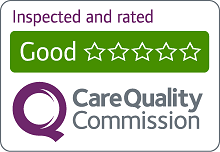Young onset dementia, also referred to as early onset dementia, is defined as dementia diagnosed under the age of 65. According to Dementia UK, there are currently an estimated 42,000 people living with young onset dementia, even though the disease is one typically associated with old age.
Signs of young onset dementia
Because dementia is usually diagnosed in people aged 65 and over, signs of young onset dementia often go unrecognised or are attributed to other causes. These include depression, stress, physical health problems and significant life changes. As such, there are sometimes delays in receiving an early onset dementia diagnosis, and an appropriate post-diagnosis care plan. The disease often results in different issues in younger people, to those of older people:
- Younger people are more likely to be diagnosed with a rarer form of dementia that affects behaviour and social functioning.
- Family members of those living with young onset dementia are more likely to report higher levels of psychological and physical distress.
- Employment issues can arise, for both the person living with early onset dementia and their partner.
- Younger people may have heavier financial commitments that add extra pressure (for example, a mortgage or young children).
- Younger people may have caring responsibilities for their elderly parents.
Symptoms of early onset dementia vary from person to person, and will differ depending on the type of dementia a young person has. This is why it is important to identify the causes of young onset dementia and determine the appropriate support.
What causes young onset dementia?
The most common causes of dementia in young people are the same progressive diseases that cause cases of dementia in elderly people – however, the symptoms are often very different.
Alzheimer’s disease: Alzheimer’s disease develops when proteins in the brain form structures called ‘plaques’ and ‘tangles’. It is the most common type of dementia in young people – however, younger people are likely to have an ‘atypical’ form of Alzheimer’s disease. This means that the initial symptom of early onset dementia is not memory loss.
Instead, signs of young onset dementia include problems with vision, speech, planning, decision-making and behaviour. This form of dementia can be genetic (familial Alzheimer’s disease), and usually starts in someone’s 30s, 40s or 50s. The earlier the symptoms start, the more likely the disease is to be genetic – although this is very rare.
Vascular dementia: Vascular dementia occurs when the blood supply to the brain is affected. It is closely linked to diabetes and cardiovascular diseases such as strokes and heart disease. According to the Alzheimer’s Society, it is probably the second most common type of dementia in young people (around 15%). Symptoms of this form of early onset dementia vary. Problems with processing and speed of thought are common, with physical symptoms (such as limb weakness) arising when vascular dementia follows a stroke.
Frontotemporal dementia: Frontotemporal dementia is caused when damage occurs to the lobes at the front and/or sides of the brain. There is a much higher percentage of younger people with this form of dementia in comparison to older people, often diagnosed between the ages of 45 and 65. There are three types of frontotemporal dementia: the behavioural variant which causes changes in personality and behaviour, and two other types in which language is affected first.
Dementia with Lewy bodies: Young onset dementia with Lewy bodies is caused by a build up of tiny protein deposits in the brain, and causes symptoms including affected levels of alertness, hallucinations and issues with movement, stiffness and trembling of the limbs. Early onset dementia with Lewy bodies occurs in around 5% of younger people.
Early onset dementia diagnosis
Receiving an early onset dementia diagnosis can take longer for a younger person – partly due to a lack of awareness and medical professionals misdiagnosing symptoms as depression, anxiety and stress. It is also partly because symptoms of early onset dementia are so varied, often appearing as changes in behaviour (for example, irritability) and personality (for example, loss of empathy).
The process of assessment and diagnosis for young onset dementia starts with the GP. If dementia is suspected, the GP will typically refer the person to a specialist. Because the route to a diagnosis of early onset dementia can be complicated, it is not unusual for young people to see several different consultants. Assessment will often include:
- Extensive tests of mental abilities, behaviour and daily functioning
- Physical exams
- Brain scans
- A lumbar puncture to collect and analyse fluid around the spine
Early onset dementia treatment
Although early onset dementia cannot be cured, there are treatments and support that can enable people to continue living well with the condition. As well as medication that may be prescribed by a GP for certain forms of young onset dementia, there are also non-drug treatments available such as counselling, talking therapies, cognitive stimulation, life story work and ensuring healthy lifestyle choices (exercising regularly, not smoking, drinking alcohol sensibly and eating a healthy diet).
Live-in care for younger people living with dementia
Here at Independent People Homecare, we offer live-in care packages for younger adults on both a long and short-term basis. Finding the right support for someone diagnosed with young onset dementia can be difficult, but our live-in carers are trained to provide professional support that enables people to remain living independently in their own home. If you’re considering your care options and would like to find out more about our live-in care services for younger people, contact our team of friendly experts on 0800 471 4741.
